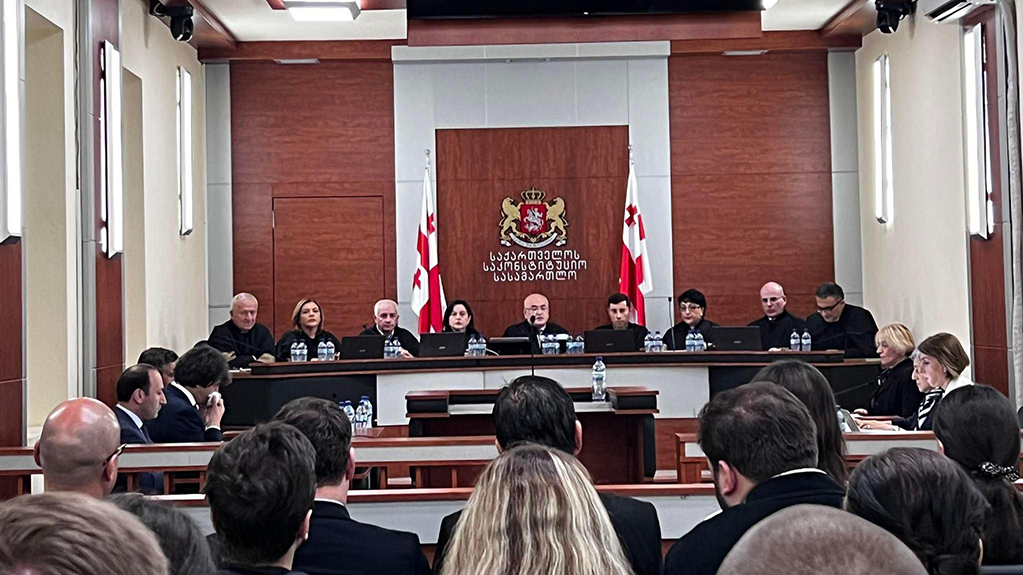The Constitutional Court of Georgia has accepted the constitutional lawsuit filed by the Georgian News against the Parliament for consideration. The media organization challenges the provisions of the Law of Georgia on General Courts which prohibit internet media from conducting photo and video recording of trial proceedings and thus place it in a discriminatory position compared to television. The Plenum admitted the case for consideration on the merits.
News
Under the provisions outlined in the Organic Law of Georgia on General Courts, exclusive authorization for unlimited photography, filming, video, and audio recording of court proceedings is granted solely to the public broadcaster. The public broadcaster shall release the record to any other media upon request. If the public broadcaster fails to exercise the right to film, the law confers the privilege to another public broadcaster, specifically another television station.
Should multiple television stations express an interest in filming proceedings, the judge will impartially select the authorized entity through a lottery system. Parallel to the obligations placed on the Public Broadcaster, private TV companies are also required to share recorded material with other media organizations.
Article 11, Clause 1 of the Constitution asserts that “all people are equal before the law.” The Constitution explicitly prohibits discrimination based on race, skin color, sex, origin, ethnic affiliation, language, religion, political or other opinions, social affiliation, property or rank, place of residence, or any other characteristics. This fundamental principle underscores the commitment to ensuring equality and safeguarding against discrimination on various grounds.
Article 17, Clause 2 of the Constitution of Georgia affirms that “Every person has the right to freely receive and disseminate information.”
The Georgian News challenges the discriminatory restrictions imposed on Internet media by the Law on General Courts in light of the provisions outlined in these articles of the Constitution.
“Throughout the years, we have consistently faced denials for video and photo recording of court proceedings on the grounds that we do not fall under the category of traditional broadcasters, such as television or radio. The contentious regulations prohibit internet media from conducting photos and video recording of court sessions, even in the absence of the public broadcaster or any other television outlet. On numerous occasions, instances have arisen where either the public broadcaster or another television station discontinues recording the proceedings before their conclusion. Regrettably, we lack the recourse to request television stations to document the entire process. Often, when delving into various topics or conducting investigative journalism, we require a comprehensive record,” notes Gela Mtivlishvili, editor of the Georgian News.
Giorgi Gotsiridze, a lawyer with the Association of Young Lawyers and head of the constitutional litigation team, is representing the interests of the media organization.















